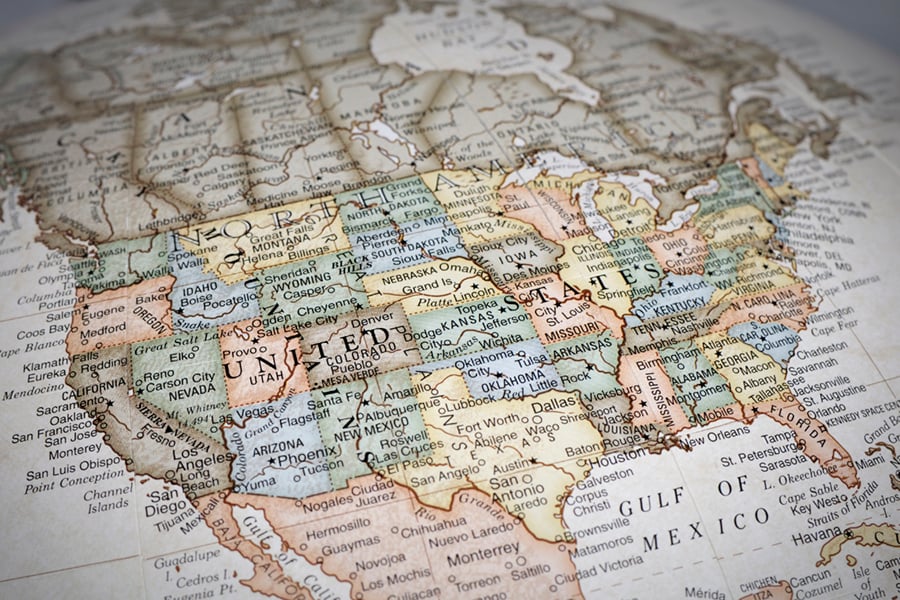

State-sponsored auto-IRAs and multiple-employer plans will see a big financial impact from the stock market free fall, which could mean it takes longer for the programs to become self-sustaining.
But that does not mean that retirement systems will suffer the same fate as the Obama-era federal myRA program, which the Trump administration dismantled several years ago.
State initiatives have expanded in recent years, with the goal of providing a retirement savings option for people who do not have access to employer-sponsored plans.
Leaders of several of the country’s first automatic individual retirement account programs said they are ready to endure a recession.
“We are prepared to weather the storm, even if assets don’t grow as quickly as they might have otherwise,” Katie Selenski, executive director of CalSavers, said in an email. “We’re here, operating at full capacity, ready to serve our participants and employers without any disruption.”
Selenski added that CalSavers is “operating on start-up loan funding right now and will repay the funds to the state with interest when our revenues allow.”
The California auto-IRA program, which launched last year, requires companies in the state that have at least 100 employees but no retirement plan to register for it by June 30. The rollout for smaller employers extends through 2022.
Earlier this month, CalSavers won a key victory in a legal challenge to the program, with a district court dismissing a lawsuit brought by a conservative tax group that sought to block the program.
One thing working in CalSaver’s favor is that most early participants have not invested in stock funds, Selenski noted.
“Unless they’ve chosen otherwise, the first thousand dollars of contributions goes into a money market fund,” she wrote. “Since we’re so new, 86% of our accounts are invested in that right now, so most of our participants are fairly well protected from recent declines.”
The first state-sponsored auto-IRA program, OregonSaves, has not seen service interrupted amid the market dive and COVID-19 pandemic, executive director Michael Parker said in a statement provided by a spokesperson.
“We are doing everything we can to ensure our investors are informed about what’s happening in the program and that they’re taken care of,” Parker said. “OregonSaves is resilient, and we will get through the challenges presented by the current economic situation.”
OregonSaves had about 64,000 residents participating as of February, with a total of about $46 million in assets in the program, according to the state.
At least 43 U.S. states have either considered or established state retirement programs for private-sector workers since 2012, according to a report from the Georgetown Center for Retirement Initiatives. And at least 24 states and cities have passed legislation, with 11 such programs either live or being developed.
Such programs have initially been funded by state or local governments, though they are generally projected to become budget-neutral or self-sustaining over the course of several years. But with unemployment almost certain to rise and hourly or gig workers seeing a massive drop in income, saving in such programs could be a low priority. Because of that, the state-sponsored programs may need to lean on government funding for longer than they initially projected.
“Smaller businesses are being hit. Right now, they have much bigger and more urgent challenges than saving for retirement,” said Joshua Gotbaum, guest scholar of economic studies at The Brookings Institution and chair of Maryland’s auto-IRA program, MarylandSaves. “People who have put money into the retirement accounts are going to take at least some of it out … This is clearly going to reduce the amount of money under management and delay the advance of these programs.”
MarylandSaves is currently searching for a program administrator and investment manager and has a goal of launching its pilot phase this year. That schedule has not been changed, and other states will likely press forward with their programs, Gotbaum said.
And unlike the ill-fated federal myRA program, they are likely to succeed, even during a recession, he said. The Treasury Department halted myRA in 2017, citing low demand. At the time, the program had about $34 million in assets across 20,000 accounts, but costs to the government were about $70 million. The program was still young, having begun in 2015.
“MyRA was a plausible, flawed idea to make it relatively cheap to set up an IRA,” Gotbaum said. “But it had no force of law behind it. Small business didn’t have to do it. And it wasn’t all that easy to [sign up].”
Because most state-sponsored programs require employers that do not already offer retirement plans to sign their workers up, they are more likely to survive, he said. State programs that are not automatic but offer strong financial incentives for employers also stand to do well, Gotbaum noted.
“The future of these programs is important because virtually half of America has no retirement savings,” he said.
[More: Auto-IRA floated in Colorado]

Relationships are key to our business but advisors are often slow to engage in specific activities designed to foster them.

Whichever path you go down, act now while you're still in control.

Pro-bitcoin professionals, however, say the cryptocurrency has ushered in change.

“LPL has evolved significantly over the last decade and still wants to scale up,” says one industry executive.

Survey findings from the Nationwide Retirement Institute offers pearls of planning wisdom from 60- to 65-year-olds, as well as insights into concerns.
Streamline your outreach with Aidentified's AI-driven solutions
This season’s market volatility: Positioning for rate relief, income growth and the AI rebound
